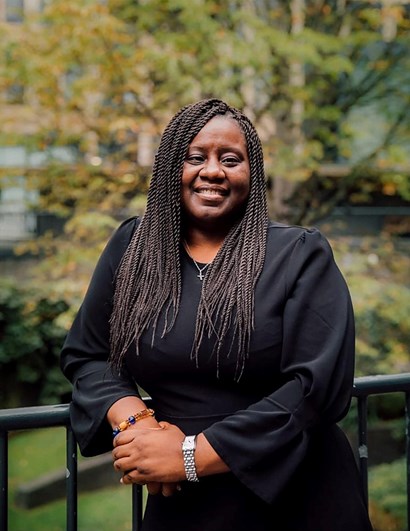
May I be among the first to congratulate you on your recent appointment to the post of Second Estates Commissioner. No doubt this appointment has drawn you into a world of numerous documents, reports and briefing papers. These will, probably, try your patience and stamina for many months to come. The Church of England is, as I am sure you are aware, an enormously cumbersome and complex organisation. Representing this institution to the potential questions and scrutiny of the House of Commons will be no straightforward task. You deserve the support, goodwill and understanding of the many people in the Church of England that you now represent.
This letter comes to you from a single individual with no official role or position. I am a retired priest who has held posts in both the Church of England and the Scottish Episcopal Church. My current unofficial role is as editor of a personal blog on the topic of safeguarding and power abuse. It is entitled Surviving Church. Over the past eleven years of the blog’s existence, I have found myself busy in writing commentary and interpretation on the stories of abusive power that have, at times, threatened to overwhelm the Church. I have, I believe, gained the respect of my readers in offering fair-minded and measured criticisms of institutional failures when these occur. I do not claim to have mastered all the legal aspects of safeguarding or even to understand all the detail of General Synod debates on this topic. In this I have found myself more and more learning from the skill and expertise of others. My contact with a group of experienced safeguarding experts has also brought me into touch with many survivors. Some have written up their experiences on the blog, while others have spoken on the phone. Thus, I would claim that although I am not technically a survivor, I believe I have a feel for many of the concerns of these courageous but often wounded individuals.
While I do not know all that is involved in your new role, I suspect that safeguarding issues will find a prominent place in your in-tray. It will become apparent to you that there is widespread concern and disquiet in the Church and beyond connected with this topic. Among many clergy and parishioners there is considerable unhappiness over some recent safeguarding decisions taken by the Church at the centre. Both the Secretariat based in Church House and the Archbishop of Canterbury’s staff working in Lambeth Palace have been challenged robustly by members of General Synod and others who have a lively interest in the topic. You will discover that the unhappiness of many over the topic of safeguarding has impacted extensively on the sense of wellbeing in the Church as a whole. In short, there is a serious problem of morale within the Church of England in 2024, closely connected with failures over safeguarding.
In finding your feet in your new role as an Estates Commissioner, you will be given briefing sheets and summaries of recent activity by the Church in areas that concern Members of Parliament. It will be difficult, initially, for you to do anything beyond following the advice of those who produce this material. The sheer weight of documentation will overwhelm you unless you have already some familiarity with it. In view of the sheer complexity of the Church of England’s affairs, you would not be blamed for allowing advisers to dictate your response to difficult and demanding questions about safeguarding from members of the House. My informal advice to you is this. Recognise that however politically sophisticated are the responses being prepared for you to use, there is nearly always another point of view which may be quite deeply at variance with the ‘official establishment’ line. I am not claiming that the criticisms of bishops and senior church figures are inevitably correct. Rather the reasons for the existence of these deeply held, but contrasting, opinions need to be to understood and appreciated.
A second piece of advice, linked to this first recommendation, is that you should become familiar with the past in the safeguarding records. I think that most historians find it easier to see which side in a finished conflict was in the right. Among survivors and their supporters, there is a term we use which we call ‘narrative wisdom’. As part of their survival strategy, survivors have made it their business to understand and interpret every detail of their case. Thus, in many cases survivors know far more what is helpful in a safeguarding crisis than the majority of highly paid professionals. It is a source of deep frustration to survivors to find, sometimes, that ‘experts’ in safeguarding have no knowledge of anything that happened more than six months previously. If I were to create a course to teach safeguarding, I would insist that every candidate was familiar with the narratives of the past, including such things as the personalities of the perpetrators and those who stood up to them. Unfortunately, the accounts that describe success in this area of church life are relatively few and we still lack the decisive leadership which would make power abuse in its various forms impossible.
I am well aware that you may be hoping that safeguarding will not be a topic on which you will be questioned in Parliament. I understand, however, that already members have been lobbied by their constituents to bring to your attention to matters that concern them in this area. I hope that you will be able to help create an environment where the legitimate concerns of ordinary voters can be addressed and the senior church officials can be prevailed upon to seek new answers to alleviate this area of human suffering.
If you would like to be in contact with me further, my email address is given in the welcome page.








